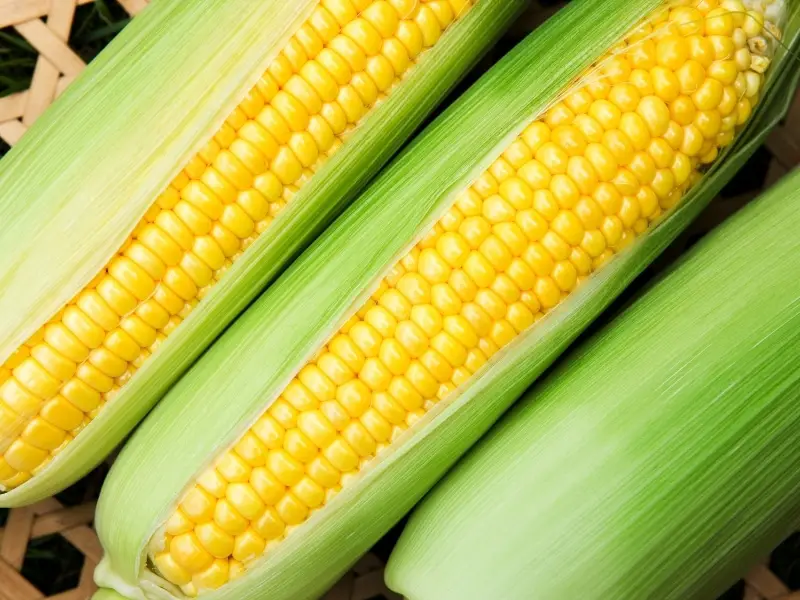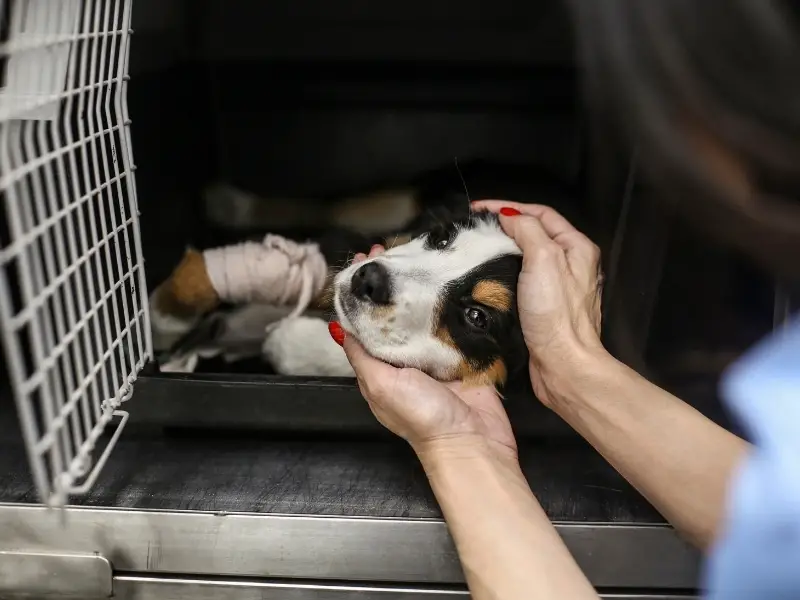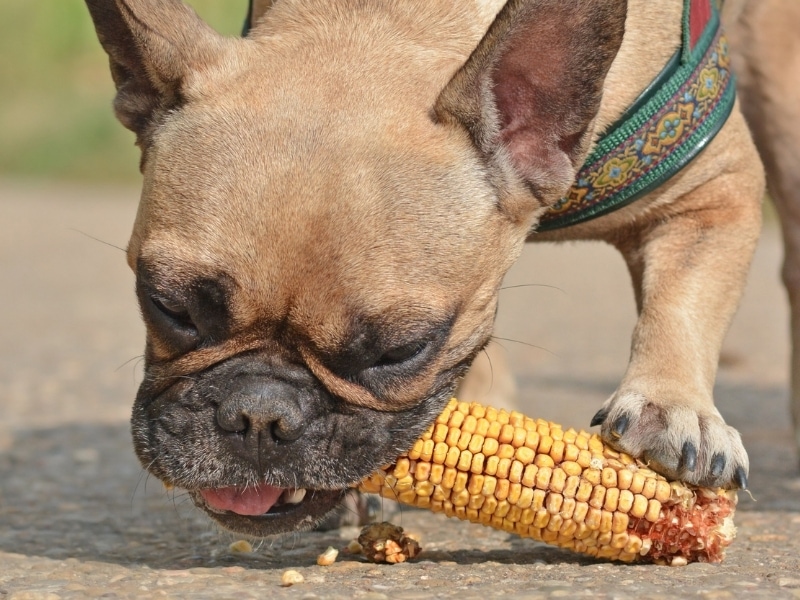Corn is one of the most popular cereal grains and a staple food in many parts of the world. If you like eating boiled, grilled, or popped corn, you’re probably eager to find out if you can share some with your furry best friend!
So, can dogs eat corn? Yes, dogs can eat corn in moderation. Corn contains several essential vitamins and minerals that can improve your dog’s health. This cereal grain is also a good source of protein and fiber that supports good digestion. Don’t feed corn cob to your dog since it poses a choking hazard.
In this article, we’ll explore the pros and cons of corn for dogs and tell you what are the best and safest ways to feed sweet corn to your pooch!
Is Corn Good for Dogs?
Corn is completely safe for dogs to eat, and depending on the type, might contain valuable nutrients. In fact, many pet food brands use corn in their dog foods due to its nutritional profile.
Despite popular beliefs, corn isn’t just a filler in dog food, it contains valuable nutrients that your dog needs to stay healthy and thrive.
Corn is a good source of protein, carbs, linoleic acid, antioxidants, and fiber. Furthermore, corn also contains essential vitamins and minerals that can boost your dog’s immune system and improve its overall health.
Benefits of Corn for Dogs

Including corn in your dog’s diet can have a beneficial effect on their overall health and well-being. Let’s take a look at the biggest benefits of feeding your dog corn:
1. Corn Supports a Strong Immune System
Corn is rich in vitamin C, a powerful antioxidant that is involved in many functions inside your dog’s body. Vitamin C supports a strong immune system and can help keep your dog protected against diseases.
This vitamin also helps reduce inflammation and can be extremely beneficial for dogs who suffer from allergies. And since vitamin C helps in the production of collagen it can improve your dog’s joint and bone health (source).
2. Corn Promotes Good Digestion
Besides being safe for your dog to eat, corn can also do wonders for your pup’s digestive system. This cereal grain is a great source of dietary fiber which promotes good digestion and can regulate your dog’s bowel movements.
Feeding your dog corn can also help keep them full for longer between meals and curb hunger pangs.
3. Corn Promotes Eye Health
Yellow corn is a great source of antioxidants carotenoids, lutein, and zeaxanthin which are good for your dog’s eye health. These antioxidants help prevent the lens damage that leads to cataracts and can help keep your pup’s eyesight sharp in senior years.
4. Corn Supports Muscle Health
Corn is also a great source of potassium which is an essential mineral and an electrolyte involved in several functions within your dog’s body. Potassium helps in the functioning of electrical charges in your dog’s heart, muscles, and nerves.
Dogs who lack potassium may appear tired all the time and have a decreased appetite. If you notice any of these symptoms take your pooch to the vet so they can check your dog’s potassium levels.
Risks of Corn for Dogs

By now it’s fairly clear that dogs can eat corn and experience certain benefits. However, like with any other food, dogs can also experience side effects after eating corn.
The biggest risks of feeding corn to dogs are:
1. Choking Hazard
While giving your dog corn on the cob might seem like a good idea, a piece can get stuck in your dog’s throat and pose a choking hazard. Furthermore, eating corn cobs can also cause a serious intestinal blockage that may require surgery.
Due to their miniature size, small dogs are at a higher risk of choking on a piece of cob so keep any corn on cobs beyond your dog’s reach.
If you suspect that your pooch managed to ingest the cob look for signs of dehydration, lethargy, repeated vomiting, diarrhea, and loss of appetite. If your dog shows any of these symptoms take them to the emergency veterinary clinic or call your vet right away.
2. Allergies
Food allergies are much rarer in dogs than in people, but some dogs might be allergic to grains or have sensitivity to corn. If your dog has a confirmed allergy to corn, they shouldn’t eat sweet corn or any other type of corn for that matter.
If you suspect that your pooch might be allergic to corn or some other ingredient from their food take them to the vet for a full check-up. Figuring out what type of food your pup is allergic to can significantly improve the quality of their life.
How Much Corn Can I Give My Dog?
While plain corn kernels are safe for dogs to eat as treats, you should talk with your vet before feeding any new foods to your dog. Like most other fruits and vegetables, dogs can eat corn as a treat in moderation.
And like any other treat, corn shouldn’t make more than 10% of your dog’s daily calorie intake (source).
If you have trouble figuring out how much corn you can feed your dog, consult your vet or a canine nutritionist. They will be able to tell you exactly how much corn can your dog have based on their age, size, and nutritional needs.
How to Feed Corn to Your Dog?
There are many ways you can feed corn to your dog, just make sure to remove the cob first. Only feed plain and unseasoned corn kernels to your pooch to avoid intestinal obstruction and choking.
Popular ways to feed corn to dogs are:
- Cook the corn on the cob and feed kernels as treats
- Use cooked corn kernels as a topper
- Mix cooked kernels with your dog’s food
- Grill the corn and feed kernels as treats to your dog
- Roast the corn on the cob and mix kernels with your dog’s food
Conclusion
One of the most popular cereal grains in the world, corn is full of valuable nutrients your dog needs to stay healthy and thrive. Rich in essential vitamins, minerals, and antioxidants, corn can boost your dog’s immune system and improve their eyesight.
While corn kernels are completely safe for dogs to eat in moderation, don’t let your dog near corn cobs. Corn cobs pose a choking hazard and can cause an intestinal obstruction if swallowed so keep them far away from your pooch.
Related Articles:


0 Comments